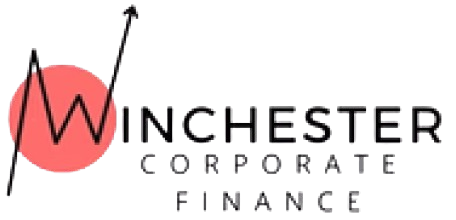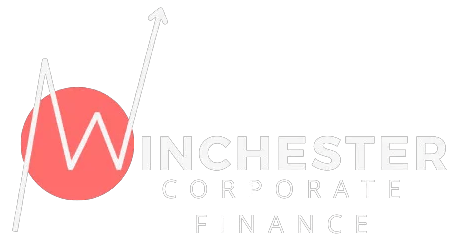Supply Chain Finance
- Faster Cash Flow: Advance 100% of invoice value for a small fee.
- Leverage Buyer Credit: Benefit from the higher credit scores of larger companies.
- Extended Payment Terms: Buyers can lengthen terms without impacting supplier cash flow.

- Tailored Solutions for Your Unique Goals
- Dedicated Support from Start to Finish
- Transparent and Trustworthy Approach

What is Supply Chain Finance?
Supply chain finance, or supplier finance, is a discounting cash advance method similar to invoice finance. It relies on the credit rating of the companies in your supply chain, enabling smaller businesses to use their buyers’ higher credit scores to reduce the risk of debt or liquidity. This arrangement improves cash flow for suppliers while allowing buyers to extend payment terms, benefiting both parties.
Faster Cash Flow: Advance 100% of invoice value for a small fee.
Leverage Buyer Credit: Benefit from the higher credit scores of larger companies.
Extended Payment Terms: Buyers can lengthen terms without impacting supplier cash flow.
The main stages of
supply chain funding
Supply chain finance effectively stabilises the supplier’s cash flow. Suppliers are paid immediately, rather than waiting for the invoice payment due date (which can be as long as 120 days.) The buyer simultaneously benefits from the extension of their payment terms without negatively impacting their suppliers. The buyer’s working capital is untouched until their extended payment terms are over if the lender takes the payment delay, and the supplier is paid within a few days.
First Stage
The supplier issues an invoice to the buyer.
Second Stage
The invoice is approved for payment to the lender and confirmed by the buyer.
Third Stage
The supplier advances the invoice value minus a small fee immediately.
Last Stage
When payment is due, the buyer pays the lender.
"Supply chain finance is a collaborative process."
Supply chain finance mutually benefits both buyers and suppliers because it helps both parties stabilise their cash flow. Suppliers receive similar benefits to invoice financing in which they are paid within a few days over waiting for extended payment terms. Buyers can delay paying suppliers for longer than average without directly putting pressure on their suppliers, essentially extending their payment terms. Because supply chain funding is based on the buyer’s credit rating, the overall cost can be lower. Both the buyer’s and the suppliers working capital is left free to use for other business purposes while the lender’s working capital is affected. From the supplier’s point of view, supply chain finance might seem similar to invoice finance, but supply chain finance is a collaborative process. Both the buyer and the supplier are helped by the lender, and all three parties have an arrangement together.

Advantages of Supply Chain Finance for Your Business
Supply chain finance offers advantages to both buyers and suppliers by enhancing their cash flow stability. This financial approach enables both parties to manage their resources more effectively, fostering a healthier financial environment for all involved in the supply chain.
Similar benefits to invoice financing: Vendors receive similar advantages to invoice financing where they receive their payments within a few days instead of long payment terms.
Extendable payment terms: Buyers have the option to lengthen their payment periods, allowing them to postpone payments to suppliers for a longer duration than usual, without directly putting pressure on their suppliers.
Low costs to businesses: The cost can be lower because supply chain funding is based on the buyer’s credit rating rather than a smaller business or SME’s credit rating.
Main Stages of Supply Chain Financing
Supply chain finance effectively stabilises the supplier’s cash flow. Suppliers are paid immediately, rather than waiting for the invoice payment due date (which can be as long as 120 days.) The buyer simultaneously benefits from the extension of their payment terms without negatively impacting their suppliers. The buyer’s working capital is untouched until their extended payment terms are over if the lender takes the payment delay, and the supplier is paid within a few days.
First Stage
The supplier issues an invoice to the buyer.
Second Stage
The invoice is approved for payment to the lender and confirmed by the buyer.
Third Stage
The lender advances the invoice value minus a small fee immediately.
Last Stage
When payment is due, the buyer pays the lender or financial institution.
Supply chain finance vs Trade Finance
Supply chain finance and trade finance are essential for helping with trade-related financial transactions but they operate differently.
Supply chain finance involves external financers who produce funds against invoices to ensure smooth capital flow.
Trade finance typically involves banks or financial providers that support transactions between importers and exporters, guaranteeing payments from buyers to protect suppliers. This setup reduces risks and creates a more secure trading environment.
Why Winchester Corporate Finance?
Our team of knowledgeable and reliable advisors, boasting nearly fifteen years of experience, is prepared to assist your business with a variety of financing options. Whether you’re looking to purchase new inventory, invest in growth initiatives or maintain a steady cash flow, we have the right business loans for you.
Navigating funding options can often be challenging, but we strive to simplify the process for you. Our primary objective is to alleviate your stress and concerns while adhering to our core values:
Growth: Our sourcing process provides you with a clear picture of what your lending options are
Family First: Peace of mind that we will look after you and your business by building a trusting relationship through sharing knowledge and full process transparency.
Integrity: We will continue to search for funding until we find the most suitable finance option for your business.
With Winchester, you can count on a seamless and stress-free experience from start to finish. So why wait? Apply Today!

Frequently Asked Questions
Is global supply chain finance the same as trade finance?
Trade finance is essential for financing the early stages of a supply chain. However, supply chain finance differs from traditional trade finance, as it involves buyers offering financing options to their suppliers.
Is supply chain finance considered debt?
Trade payable and debt both represent money owed, but they differ in financial implications. Trade payables are part of working capital, while debt is a liability. By using supply chain finance, buyers can improve their balance sheets by extending payment terms for better financial health.
Is supply chain finance secured?
In supply chain financing, the buyer seeks loans to extend payment terms for purchased supplies. Unlike traditional methods, suppliers don’t sell invoices to lenders- instead, the buyer uses their financial security as collateral. This allows the buyer to delay repayment without facing direct costs.


